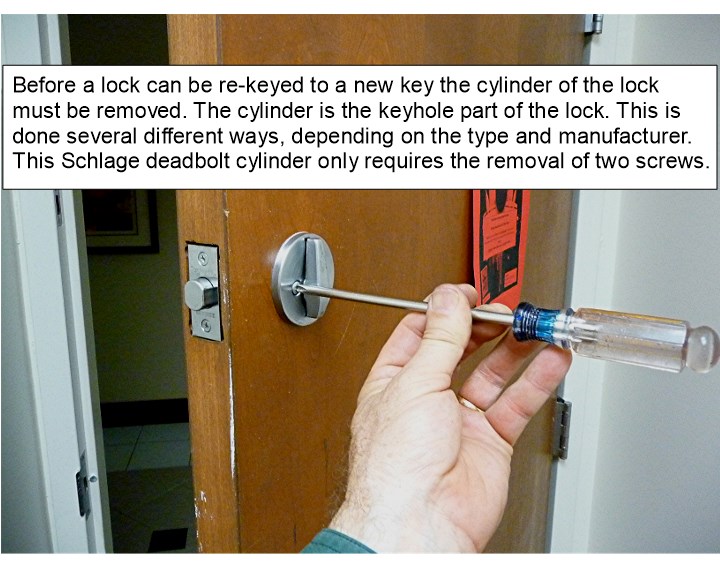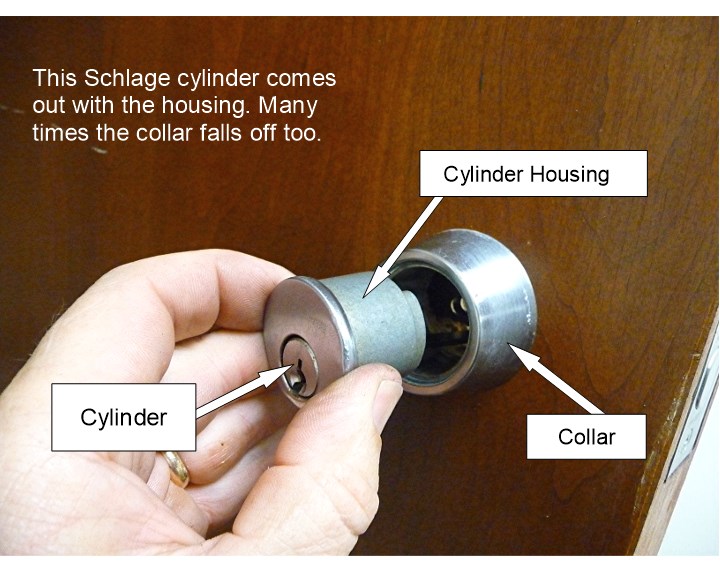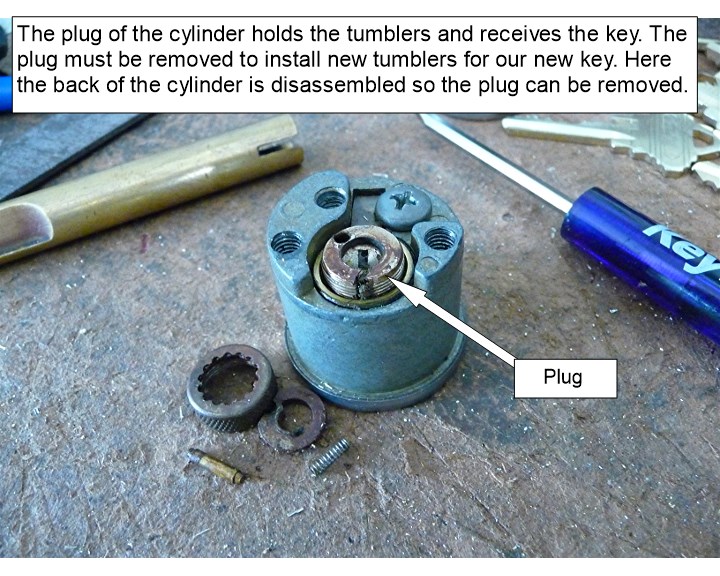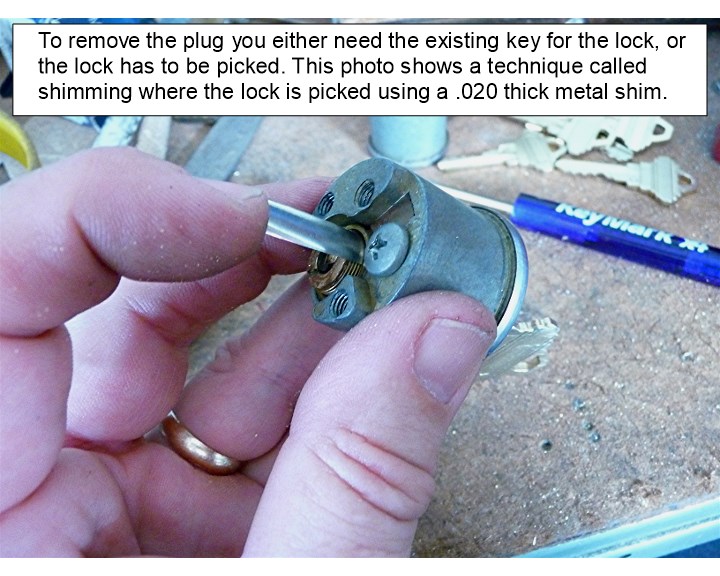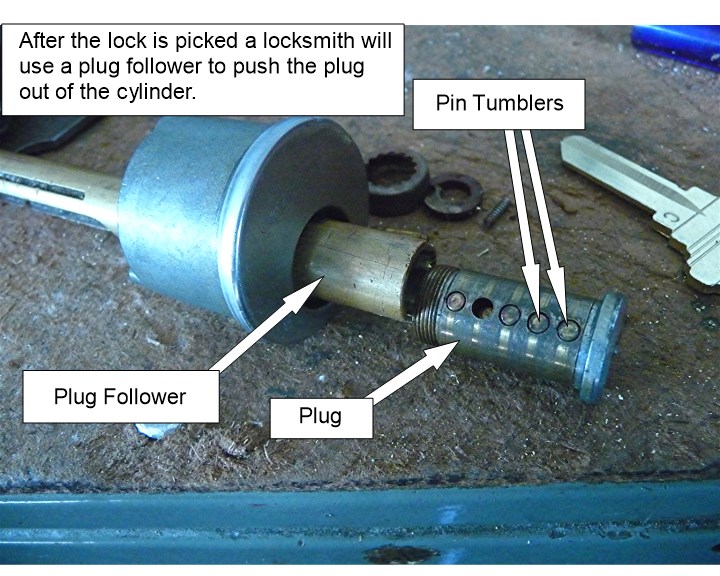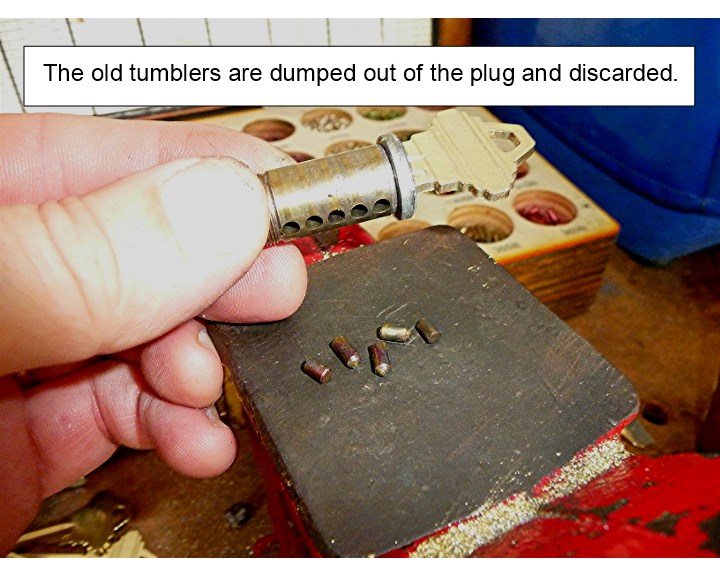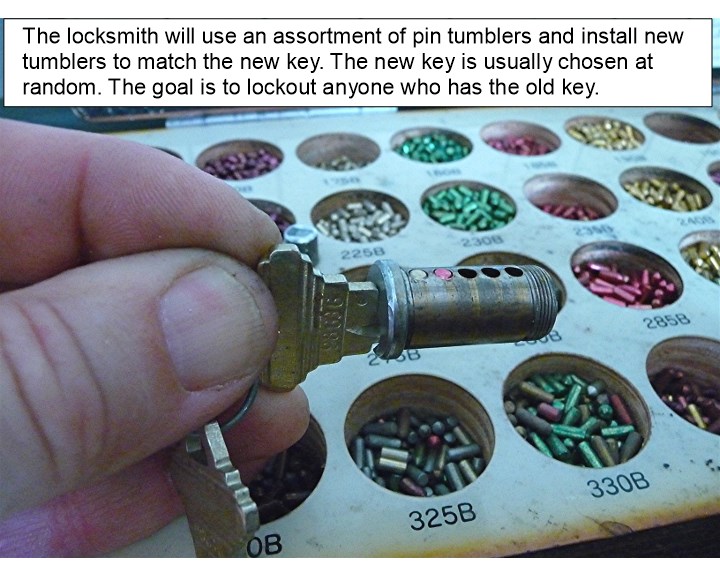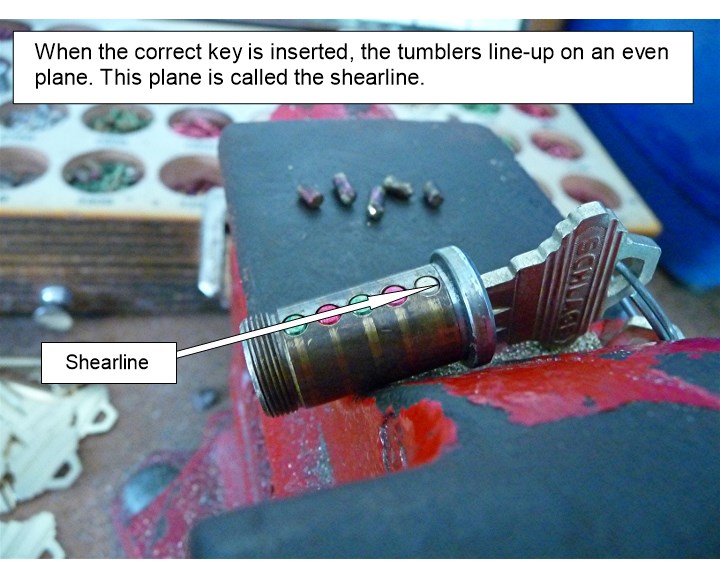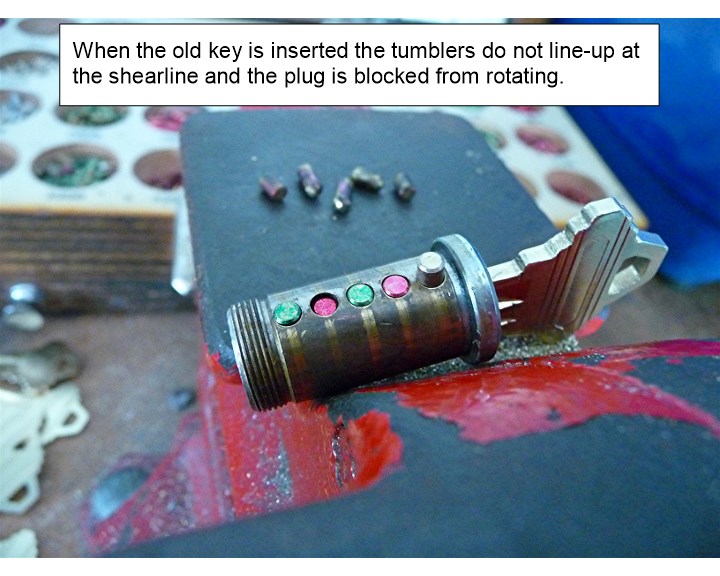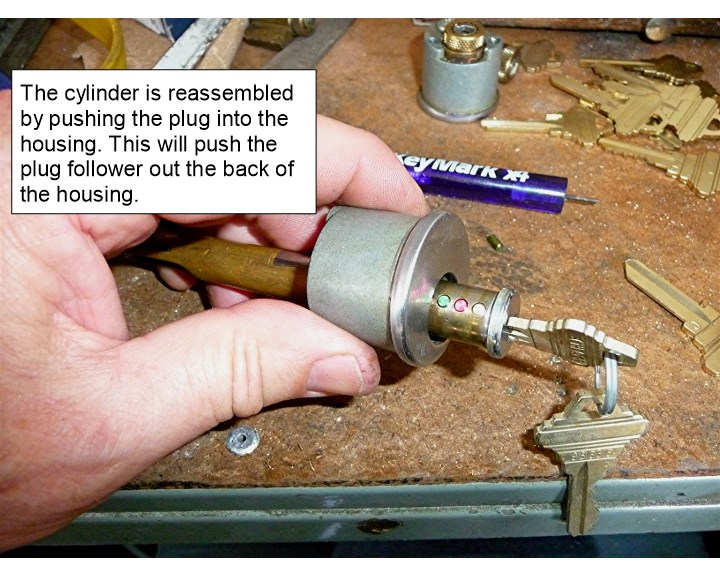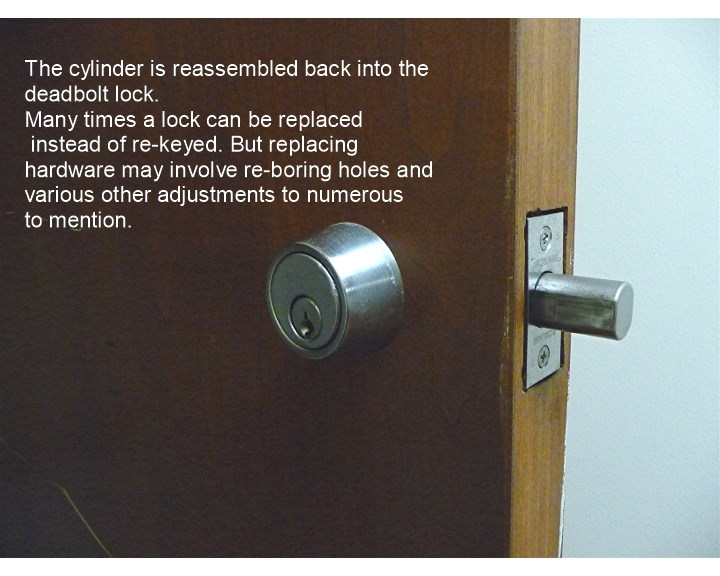The goal of re-keying a lock is to change the existing key for the lock to a different key, thus terminating access to anyone who had a key. The two most common times a locksmith is called out to re-key a lock is when an employee who had a key is terminated, or when a family is moving into their new home. When you move into a new home you never know who the former owners gave keys too. Security and peace-of-mind are the benefits of re-keying the locks when moving into a new home, apartment or office space.
Sometimes customers misunderstand lock re-keying and lock replacement. The customer will tell me over the phone they want all the old hardware back after the locks are changed. The problem is not the customers fault because “re-keying,” and “changing,” usually mean the same thing to the locksmith. The desired result is to change the key, not replace the whole lock with a new lock. When the locksmith changes a lock or re-keys a lock, he uses the existing hardware. When the locksmith finishes the job the old hardware is still on the door, but the old key will not work.
There are times to replace hardware, especially if the home is 40 years old. Deadbolts made in the 1960’s and early 1970’s are easily defeated with a claw-hammer or other instruments of abuse. Very old deadbolt locks, or newer cheap locks should be replaced with locks designed to deter forced entry with hammers and crowbars.
Today there are many very good high security deadbolts on the market which offer key control, pick-resistance and bump-resistance. Bump-resistance deters the use of “bump-keys,” from opening the lock. Medeco, Assa, Abloy and Mul-T-Lock are a few brands which offer a superior deadbolt with key control. Key control means only authorized people can get duplicate keys. Every key to the business or home is audited and signed for by an authorized person.
The following photos will show you how a locksmith re-keys a lock. Do not use these photos to change your own lock. There is much more to know about locks before you attempt this procedure.

